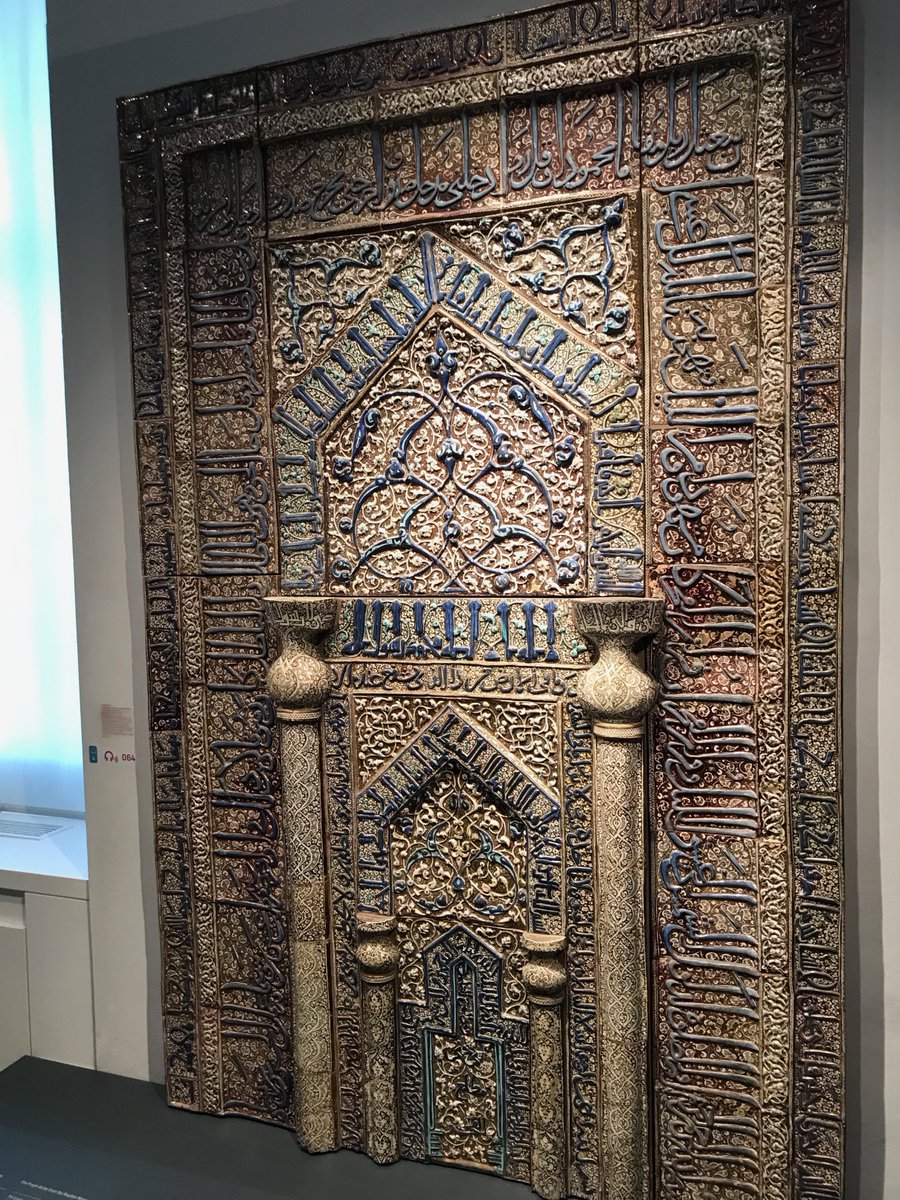In the Neues Museum in Berlin. It strikes me that German museums would not exist w/o #restitution. Museums were gutted in WWII & thereafter had to be remade. So this stela was taken from the Neues during the war, bought by @kelseymuseum in 1945, then returned to Berlin in 2017. 

@kelseymuseum This Persian prayer niche was installed in the Neues in 1927 and removed to Russia during the war. It was returned to the Neues in 1957. 

@kelseymuseum There are many other instances. Berlin's museum economy rests on other institutions' willingness to return objects that were stolen, looted, grabbed, or misappropriated during the war.
• • •
Missing some Tweet in this thread? You can try to
force a refresh












